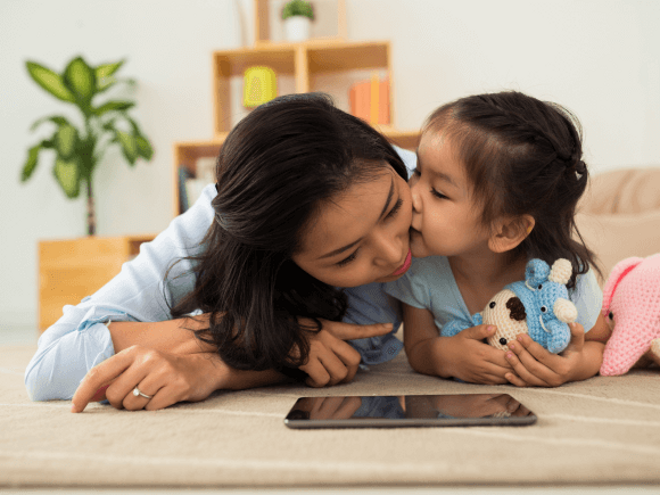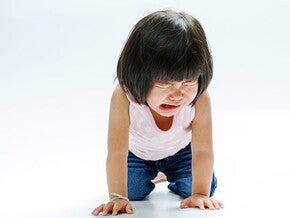
Mengapa masa skrin tidak baik untuk kanak-kanak?
In the shape of smartphones, tablets, TVs, game consoles, and computers, screens are everywhere in our lives, and touchscreen technology makes it easy for even young children to engage.
You may not think that access to screens at such a young age is much to worry about. However, research suggests that too much TV or screen time can lead to less time spent being active, and ultimately to unhealthy weight gain in childhood. For this reason, medical associations, including the American Academy of Pediatrics, advise against media use by children younger than two years of age. It may be best to act now to limit screen time and encourage healthy and active habits that can last into childhood and beyond.
Spend quality time being active
Screens can interfere with the amount of time children spend interacting with their parents and moving around. If you are often looking at a screen, it’s likely your child will be as well. Screen time can end up taking the place of time spent doing activities together.
In one recent study, childcare providers believed that very young children required less than one hour of activity each day, when, in fact, the guidelines were for at least 90 minutes of daily activity. Having a daily routine that includes interactive playtime encourages your child’s physical development, building up muscles, and improving coordination—skills needed for crawling and, in time, standing and walking. Building activity into every day is not only fun, but also helps create healthy habits for the future.
Sleep-deprived parents may also be interested to learn that screen-watching can affect both your child’s nighttime sleep and daytime naps by causing him to take longer to fall asleep and spending less time asleep. So, switch off screens for better sleep—for you both.
Sources
- AAP Council on Communications and Media. Media and young minds. Pediatrics 2016; 138(5):e20162591.
- Anderson SE, Whitaker RC. Household routines and obesity in US preschool-aged children. Pediatrics 2010; 125(3):420-8.
- Carson V, Stearns J, Janssen I. The relationship between parental physical activity and screen time behaviors and the behaviors of their young children. Pediatr Exerc Sci 2015; 27(3): 390-5.
- Dennison BA, Erb TA, Jenkins PL. Television viewing and television in bedroom associated with overweight risk among low-income preschool children. Pediatrics 2002; 109(6):1028-35.
- Duch H, Fisher EM, Ensari I et al. Screen time use in children under 3 years old: a systematic review of correlates. Int J Behav Nutr Phys Act 2013; 10:102. doi: 10.1186/1479-5868-10-102.
- Hesketh KR, van Sluijs EM, Blaine RE et al. Assessing care providers’ perceptions and beliefs about physical activity in infants and toddlers: baseline findings from the Baby NAP SACC study. BMC Public Health 2015; 15:100 doi: 10.1186/s12889-015-1477-z
- Thompson DA, Christakis DA. The association between television viewing and irregular sleep schedules among children less than 3 years of age. Pediatrics 2005; 116(4):851-6.
Last revised: November, 2017























